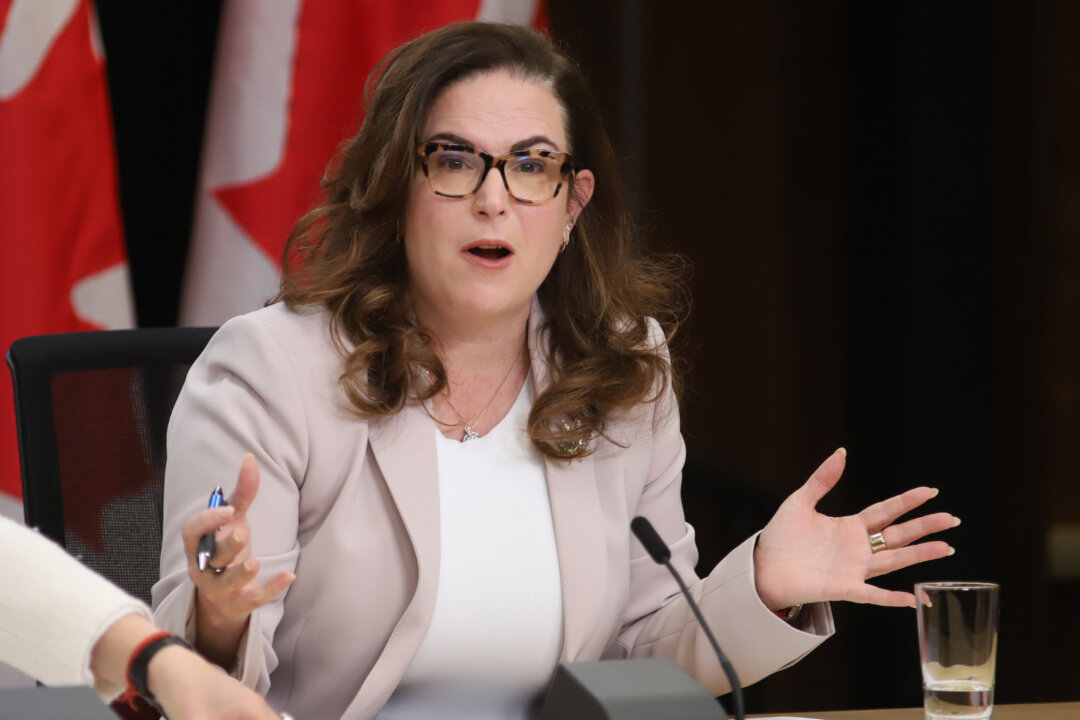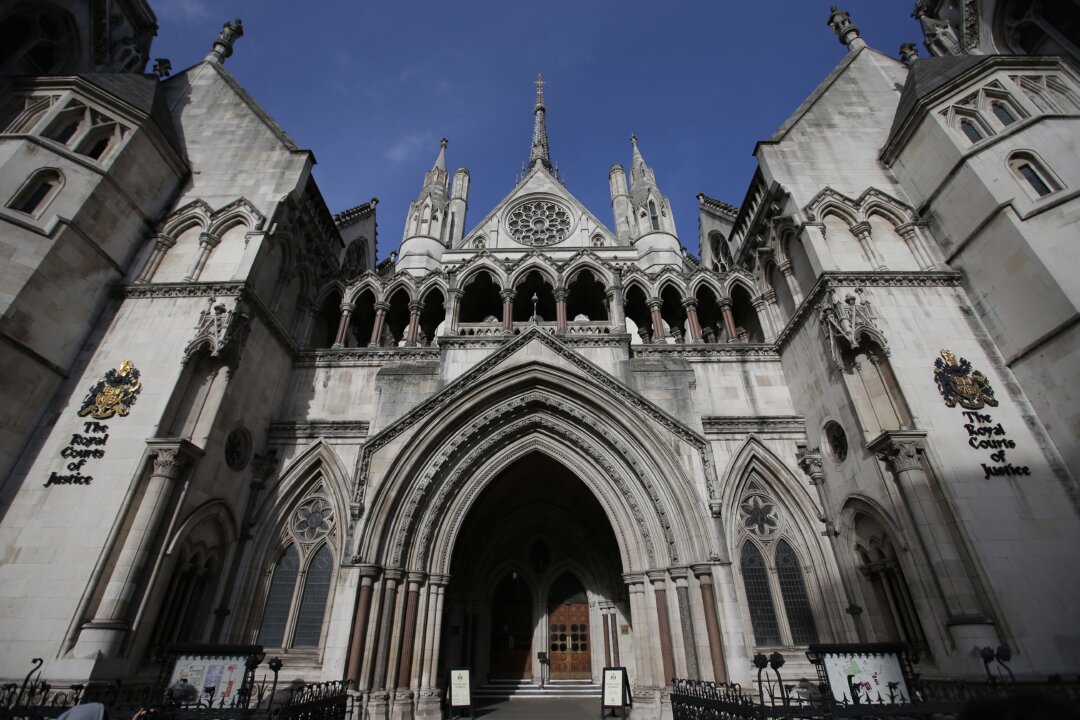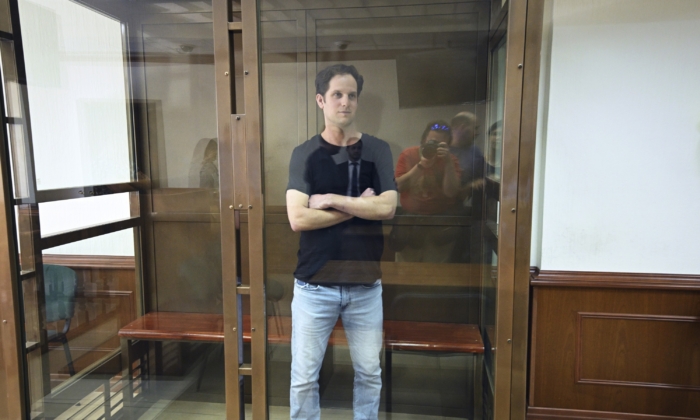A human rights group has criticized Ottawa for not alerting Chinese diaspora communities to Beijing’s extensive foreign interference in Canada’s 2019 and 2021 general elections, despite having ample evidence.
The group, known as the Chinese Canadian Concern Group on the Chinese Communist Party’s Human Rights Violations (the Concern Group), made the comment in its submission to the public inquiry into foreign interference on April 15.
“Despite the evidence of apparent PRC interference that was known in advance of [the 43rd and 44th general elections], at no point did any of our national intelligence and security agencies, ... the Prime Minister or any other authority ever issue a notification or warning to members of the Chinese diaspora,” the Concern Group wrote.
“This was arguably a missed opportunity to deter and counter” interference by the People’s Republic of China (PRC), said the group, noting the government could have issued tailored notices through carefully chosen media and social platforms, empowering the diaspora to defend themselves and reinforce the integrity of Canada’s democratic processes.
The Concern Group, which includes experts from various professional fields in the Chinese-Canadian community, particularly from the Greater Vancouver area, is participating in the public inquiry as an intervenor, allowing it to make submissions and recommend witnesses.
Why China Targets Diasporas
The Concern Group has pinpointed three primary vulnerabilities of the Chinese diaspora to Beijing’s interference. Primarily, the regime aggressively seeks to control individuals of Chinese descent globally, often blurring the lines between PRC nationals and ethnic Chinese citizens of other countries.
“The CCP [Chinese Communist Party] seeks to influence overseas communities, foreign governments and other actors to take or adopt positions in support of Beijing’s preferred policies, discourage dissenting views, and harass or undermine groups that are critical of the CCP,” the group stated in its submission.
Secondly, influential figures within the Chinese-Canadian community are often targeted by Beijing. These individuals, such as community and business leaders, academics, and journalists, as well as current and former elected officials, wield considerable influence over the diaspora’s perspectives on political matters.
“By virtue of their status and influence, they are prone to becoming proxies or agents of the PRC,” the submission stated.
Lastly, language barriers heighten the Chinese diaspora’s susceptibility to Beijing’s interference. The Concern Group noted that many in the diaspora turn to Canadian-based Chinese media or native media from China, which may be influenced by CCP narratives. The reliance on Chinese social media applications like WeChat, which lacks robust misinformation checks and is subject to CCP censorship, further complicates the issue.
Media Control
The Concern Group highlighted how the CCP employed disinformation and misinformation tactics in its efforts to interfere with the 2021 Canadian general election, pointing to Global Affairs Canada’s detection of suspected CCP disinformation campaigns targeting Conservative candidates Erin O’Toole and Kenny Chiu.
The disinformation campaign portrayed Mr. O’Toole as “anti-China,” alleging that he intended to sever diplomatic ties with China and ban WeChat, according to the submission. Mr. Chiu, who had proposed legislation to establish a foreign agent registry, was also targeted. Both politicians say they and the Conservative Party were targeted by Beijing.
Global Affairs Canada specifically noted narratives in two articles by the CCP-aligned Global Times on Sept. 8, 2021, suggesting that “The Conservatives almost want to break diplomatic relations with China.” The Concern Group reported that these articles were then widely circulated on Canadian WeChat news platforms such as York BBS, Global Chinese Convergence Media, Today’s Commercial News, 105.9 Yes My Radio, GTA Life, iToronto Life, and Vancouver Headlines.
These WeChat accounts reposted the Global Times content without attribution, a tactic used to obscure the origin of the narrative, the Concern Group noted.
Beyond Elections
Winnie Ng, a Concern Group member and co-chair of the Toronto Association for Democracy in China, urged the Foreign Interference Commission to extend its investigation back to the 1990s to fully grasp the scope of foreign interference in Canada.
Ms. Ng noted that the CCP’s decision to use military force against its citizens during the 1989 Tiananmen Square protests marked a pivotal moment for many in the Chinese diaspora, signalling the onset of ongoing PRC interference in Canada.
The Concern Group also highlighted that the PRC’s influence extends beyond election cycles, noting a significant uptick in interference activities during the Meng Wanzhou incident. The Huawei chief financial officer was arrested in Vancouver in 2018 on a U.S. extradition warrant.
In its submission, the Concern Group cited CSIS director David Vigneault, who said understanding a foreign state’s objectives is crucial in combating interference. For the CCP, these objectives include maintaining its power and addressing threats from what it terms the “Five Poisons”: Falun Gong adherents, Uyghurs, Tibetans, members of the Chinese democracy movement, and Taiwanese independence advocates.
Canada’s vulnerability to PRC interference has also been attributed to its membership in the G7, NATO, and the Five Eyes Alliance, as well as its robust economy, strategic resources, proximity to the United States, and significant Chinese diaspora community.














 English (US) ·
English (US) ·  Turkish (TR) ·
Turkish (TR) ·